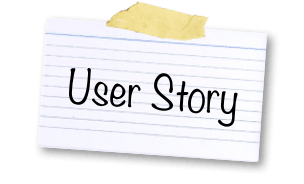
INVEST, DEEP , SMART & Three C’s are Effective User Story Techniques. INVEST is a useful mnemonic established by Bill Wake in Extreme Programming Explored. It can be used to inspect the quality of your user story by validating it against each of the following (in Bill Wake’s words):
Effective User Story Techniques – INVEST
Independent – Each User Story should represent a distinct and independent set of business values such that, were it released on its own, it would deliver incremental value over the previous state.
Negotiable – While the end-goal may be clearly described, the methods by which that goal is achieved should be negotiable – between the Product Owner and the Development Team, the Product Owner and the Customer, or any other involved stakeholders – so as to prevent unrealistic constraints on the feature or functionality.
Valuable – The business value of any User Story should be readily recognizable by reading the story, and each story should represent some sort of value to a specific user type.
Estimable – We must have enough information that we can properly size a story so that we may properly plan and commit to our work. (But no more!)
Small – User Stories should be small enough that they are able to be completed within a sprint.
Testable – All members of the team need a clear and precise way to verify whether or not a User Story has been completed.
Effective User Story Techniques – DEEP
Detailed—acceptance criteria to get started
Emergent—The Product Backlog is never “complete”; it is refined over time
Estimated—sized in terms of effort
Prioritized—by value, risk, cost, dependencies, etc.
Effective User Story Techniques – SMART
Specific – Everyone will have the same understanding as to what the goals are.
Measurable – We can objectively determine if the goals have been reached.
Achievable – The stakeholders agree as to what the goals are.
Realistic – We shall be able to achieve the goals for the project with the resources we have.
Time-Based – We will be given enough time to achieve the goals.
Effective User Story Techniques – Card, conversation, confirmation
Card – A “Card” (or often a Post-It note), a physical token giving tangible and durable form to what would otherwise only be an abstraction:
Conversation – A “conversation” taking place at different time and places during a project between the various people concerned by a given feature of a software product: customers, users, developers, testers; this conversation is largely verbal but most often supplemented by documentation;
Confirmation – The “confirmation”, finally, the more formal the better, that the objectives the conversation revolved around have been reached.
More Details on 3Cs- Click Here
Conclusion
As you discuss stories, write cards, and split stories, the INVEST acronym can help remind you of the characteristics of good stories. INVEST are guidelines for quickly evaluating the quality of user stories. Also the acronym SMART (Specific, Measurable, Achievable, Relevant, Time-boxed) can be used for tasks resulting from the technical decomposition of user stories.
